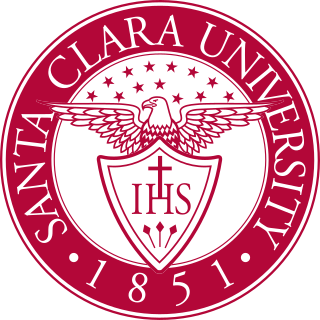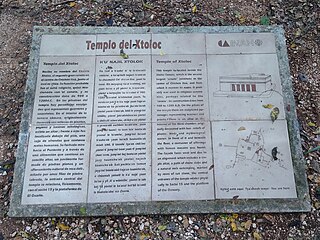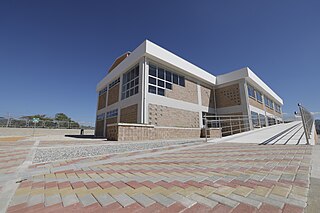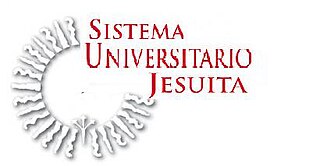Cross-cultural communication is a field of study investigating how people from differing cultural backgrounds communicate, in similar and different ways among themselves, and how they endeavor to communicate across cultures. Intercultural communication is a related field of study.

Intercultural relations, sometimes called intercultural studies, is a field of Social science. It is a multi-disciplinary academic field designed to train students to understand, communicate, and accomplish specific goals outside their own cultures. Intercultural relations involves, at a fundamental level, learning how to see oneself and the world through the eyes of another. It seeks to prepare students for interaction with cultures both similar to their own or very different from their own. Some aspects of intercultural relations also include, their power and cultural identity with how the relationship should be upheld with other foreign countries.

Santa Clara University is a private Jesuit university in Santa Clara, California, United States. Established in 1851, Santa Clara University is the oldest operating institution of higher learning in California. The university's campus surrounds the historic Mission Santa Clara de Asís which traces its founding to 1777. The campus mirrors the Mission's architectural style and is one of the finest groupings of Mission Revival architecture and other Spanish Colonial Revival styles. The university is classified as a "Doctoral/Professional" university.

Loyola College is a private Catholic higher education institution run by the Society of Jesus in Chennai, Tamil Nadu, India. It was founded in 1925 by the French Jesuit priest, Francis Bertram, along with other European Jesuits. It is an autonomous Jesuit college affiliated with the University of Madras. Loyola commerce association celebrated its 75th year in 2019. Loyola College has more than 10,000 students studying as of 2023.
Education in Mexico has a long history. Indigenous peoples created institutions such as the telpochcalli and the calmecac. The Royal and Pontifical University of Mexico, the second oldest university in the Americas, was founded by royal decree in 1551. Education in Mexico was, until the early twentieth century, largely confined to males from urban and wealthy segments and under the auspices of the Catholic Church.

Intercultural learning is an area of research, study and application of knowledge about different cultures, their differences and similarities. On the one hand, it includes a theoretical and academic approach. On the other hand, it comprises practical applications such as learning to negotiate with people from different cultures, living with people from different cultures, living in a different culture and the prospect of peace between different cultures.

ITESO, Universidad Jesuita de Guadalajara — distinct from the University of Guadalajara — also known as Instituto Tecnológico y de Estudios Superiores de Occidente, ITESO, is a Jesuit university in the Western Mexican state of Jalisco, located in the municipality of Tlaquepaque in the Guadalajara Metropolitan Area.

The Constitution of Mexico does not declare an official language; however, Spanish is the de facto national language spoken by over 99% of the population making it the largest Spanish speaking country in the world. Due to the cultural influence of the United States, American English is widely understood, especially in border states and tourist regions, with a hybridization of Spanglish spoken. The government also recognizes 63 indigenous languages spoken in their communities out of respect, including Nahuatl, Mayan, Mixtec, etc.

Totontepec Villa de Morelos is a town and municipality, in the Sierra Mixe district of the Mexican state of Oaxaca. It is located 1,840 meters above sea level and 146 kilometers from the state capital, Oaxaca de Juárez. The toponym "Totontepec" is of Nahuatl origin, meaning "hot hill". In the local dialect of Mixe the town is called Anyukojm, meaning "place of thunder."

The Universidad Tecnológica de México (UNITEC) is a private university located in Mexico City, with campuses in the states of Guanajuato, Jalisco, México, and Querétaro. It offers high school, bachelor, and postgraduate programs. Ignacio Guerra Pellegaud founded it in 1966 and since 2008 is part of the Laureate International Universities Network. The UNITEC has 10 campuses: Cuitláhuac, Marina and Sur in Mexico City; Atizapán, Ecatepec, Los Reyes, and Toluca in the State of Mexico; Leon in the State of Guanajuato; Guadalajara in the State of Jalisco; and Querétaro in the State of Querétaro. Additionally, it has an Online Campus. UNITEC's total enrollment is higher than 90,000; more than 64,000 students are concentrated in the campuses of the Mexico City Metropolitan Area, which makes it the largest private university in this country region.
Cultural competence, also known as intercultural competence, is a range of cognitive, affective, behavioural, and linguistic skills that lead to effective and appropriate communication with people of other cultures. Intercultural or cross-cultural education are terms used for the training to achieve cultural competence.

The Experiment in International Living, or The Experiment, is a worldwide program offering homestays, language, arts, community service, ecological adventure, culinary, and regional and cultural exploration programs of international cross-cultural education for high school students. It is administered by World Learning, a non-profit, international development and education organization based in Brattleboro, Vermont, in the United States.

Education in Guatemala is under the jurisdiction of the Ministry of Education which oversees formulating, implementing and supervising the national educational policy. According to the Constitution of Guatemala, education is compulsory and free in public schools for the initial, primary and secondary levels. There is a five-tier system of education starting with primary school, followed by secondary school and tertiary education, depending on the level of technical training.
San José Chinantequilla is a Mexican community by the state of Oaxaca, in the municipality of Totontepec Villa de Morelos located in the mixe district, is located in the sierra norte. It was founded by migrants from Guanajuato in 1913.
Intercultural bilingual education(Educación bilingüe intercultural) is a language-planning model employed throughout Latin America in public education, and it arose as a political movement asserting space for indigenous languages and culture in the education system. IBE is designed to address the educational needs of indigenous communities, and consists of various bilingual curriculum designs.

The Institute of Intercultural Management and Communication or ISIT, formerly Institut Supérieur d’Interprétation et de Traduction, is a French Grande École of Paris-Panthéon-Assas University.

The Jesuit University System (SUJ) is a network of private universities that belong to the Mexican Province of the Society of Jesus, Jesuits, who have universities around the world joined by such associations.
Canadian Indigenous Languages and Literacy Development Institute (CILLDI) - an intensive annual "summer school for Indigenous language activists, speakers, linguists, and teachers" - hosted at the University of Alberta, Edmonton - is a "multicultural, cross-linguistic, interdisciplinary, inter-regional, inter-generational" initiative. CILLDI was established in 1999 with one Cree language course offered by Cree speaker Donna Paskemin. By 2016 over 600 CILLDI students representing nearly 30 Canadian Indigenous languages had participated in the program and it had become the "most national of similar language revitalization programs in Canada aimed at the promotion of First Peoples languages." CILLDI - a joint venture between the University of Alberta and the University of Saskatchewan - responds to "different sociolinguistic situations in language communities under threat" and includes three faculties at the University of Alberta in Edmonton - Arts, Education, and Native Studies. CILLDI provides practical training to students which is "directly implemented back in the community." Initiatives like CILLDI were formed against the backdrop of a projection of a catastrophic and rapid decline of languages in the twenty-first century.
Niki Davis is an educator and researcher based in Aotearoa New Zealand whose work has focused on equipping teachers to effectively deliver information and communication technologies in a global education context. Her research has explored how teaching, learning and assessment can be inclusive and ethically managed in non-traditional spaces involving E-learning while acknowledging the role of the knowledge of indigenous peoples in assisting to build critically reflective research communities. She worked in universities in the United Kingdom and the United States before becoming a Distinguished Professor at the University of Canterbury in 2008, retiring and becoming Professor Emeritus in 2020. Davis has been involved in a range of initiatives and organisations that promote knowledge of digital technologies in education and is widely published in this field.
Virtual exchange is an instructional approach or practice for language learning. It broadly refers to the "notion of 'connecting' language learners in pedagogically structured interaction and collaboration" through computer-mediated communication for the purpose of improving their language skills, intercultural communicative competence, and digital literacies. Although it proliferated with the advance of the internet and Web 2.0 technologies in the 1990s, its roots can be traced to learning networks pioneered by Célestin Freinet in 1920s and, according to Dooly, even earlier in Jardine's work with collaborative writing at the University of Glasgow at the end of the 17th to the early 18th century.












